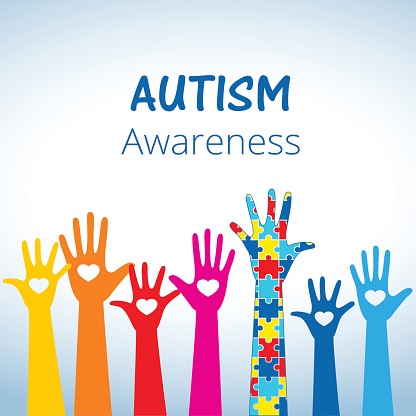
Inclusion: Persons with autism
'Inclusion' for persons with disability is gradually being accepted both as a right and the right thing to do.
The Convention on the Rights of Persons with Disabilities confirms this right and advocates for persons with disability (PWDs) to be offered the same opportunities as everyone.
Advertisement
It asks that we make sure that the right support and services are available to accommodate individual differences and make individuals with disabilities live a full life, experiencing a sense of belonging.
Inclusion in community
Inclusion, according to autismspeaks.org, "is about a community where everyone is recognised for their differences and everyone is recognised as belonging - not only in our schools, but in our communities".
In Ghana, inclusion works in various ways for Persons With Autism (PWAs) and their families. An earlier article by Quaynor & Ackom-Mensah; 'Physical distancing: Familiar phenomenon of autistic parents' in the March 28, 2020 issue of the Daily Graphic gives some background to this topic.
Inclusion at home
Many families may have developed their own methods to keep some sense of normality in lockdown times. People generally find change difficult, more so people on the autistic spectrum. COVID-19 has introduced a lot of change at different levels for all of us.
So then, how do families with autistic children cope in these situations?
Inclusion at school
"Inclusive education" is creating a school environment where all students, including those with special needs, are fully integrated into the general education classroom. Reasonable adjustments should be made to give all students equitable access to the benefits of quality teaching and learning.
In Ghana, finding an inclusive setting for PWAs is extremely difficult. Inclusive education as practised by the Ghana Education Service (GES) has historically focused on the blind, deaf and the visual or hearing impaired.
Within the last 10 years, a few young PWDs have been included and supported through primary, basic/senior high school and tertiary education to adulthood and have professional careers.
In Ghana, many parents of children with autism struggle to get their children into a school, even more so, one of their choice. In addition, parents may have to pay a facilitator to provide support in the classroom.
Depending on the facilitator's training, expertise and interest, the class teachers may often relinquish their position as teacher. The autistic child then becomes the facilitator's "child" at school. The teacher makes little or no effort to include the child.
Autism in Ghana is a 'lesser known' disability. Several campaigns are organised to inform and educate. The target of the message has often missed important stakeholders within the education (e.g. early years providers and teachers), health (e.g. educational psychologists) and social (e.g. parents, churches and mosques) sectors.
Effective inclusion
This year's theme for world autism awareness asks for the development and improvement of services for young PWAs to transition to adulthood. Much of this can be done by properly outlining and supporting well, identification, diagnosis and management of their needs.
Right from the diagnosis of autism, new families must be signposted to credible autism groups and individuals for advice and support. Siblings and the wider family must be educated about what autism is so that they can begin to understand, accept and value human differences.
In educational settings, commitment to a successful inclusion programme must take a holistic approach. Planning and being part of an inclusive education programme must actively encourage interaction between the whole school community and their families (i.e. the school board, staff and student leadership and incidental staff).
Inclusion is not what the class teacher alone does with the student in the classroom. All stakeholders must take ownership and share in the benefits of the outcomes.
The world does not have to be divided into the non-disabled and the disabled. Ultimately, a most important inclusion objective is that it recognises and honours the fundamental value of all people.
Including people with disability is the right thing to do.
The writers, N.A.V. Owusu & Hannah Ackom-Mensah are with the Dept. of Audiology, Speech and Language Therapy at the University of Ghana and a Researcher at AutismDTgh.




